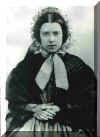

|
|
|
1751 - 17601752 September 3: Julian Calendar dropped and Gregorian Calendar adopted in England,
making this September 14 – "Give us back our 11 days!" Year standardised to end December 31 (previously March 24) 1753 Earliest Inghamite registers 1754 Hardwicke Act (1753): Banns to be called, and Printed Marriage Register
forms to be used – Quakers & Jews exempt First British troops not belonging to the East India Company despatched
to India First printed Annual Army Lists 1755 Publication of Dictionary of the English Language by Dr Johnson Period of canal construction began in Britain (till 1827) 1756 The Seven Years War with France (Pitt's trade war) begins Wolfgang Amadeus Mozart(1756-1791), Austrian composer.1757 March 14: Admiral Byng shot at Portsmouth for failing to relieve
Minorca India: The Nawab of Bengal tries to expel the British, but is defeated at
the battle of Plassy – the East India Company forces are led by Robert Clive Black Hole of Calcutta The foundation laid for the Empire of India 1758 India stops being merely a commercial venture – England begins
dominating it politically – The East India Company retains its monopoly
although it ceased to trade 1759 January 15: British Museum opens to the public in London March: First predicted return of Halley's comet September 13: Gen James Woolfe killed at Quebec Wesley builds 356 Methodist chapels 1760 October 25: George II dies – George III Hanover, his grandson, becomes
king The date conventionally marks the start of the so-called "first
Industrial Revolution" Carron Iron Works in operation in Scotland May 5: First use of hangman's drop – last nobleman to be executed (Laurence, Earl Ferrers) at Tyburn
|
|
|